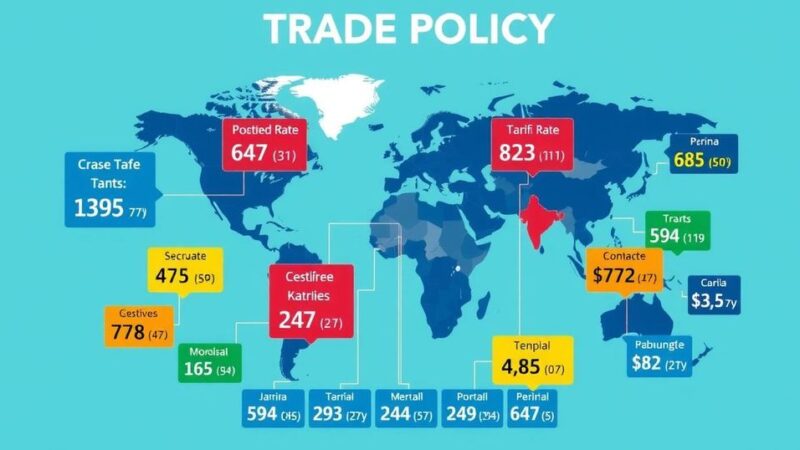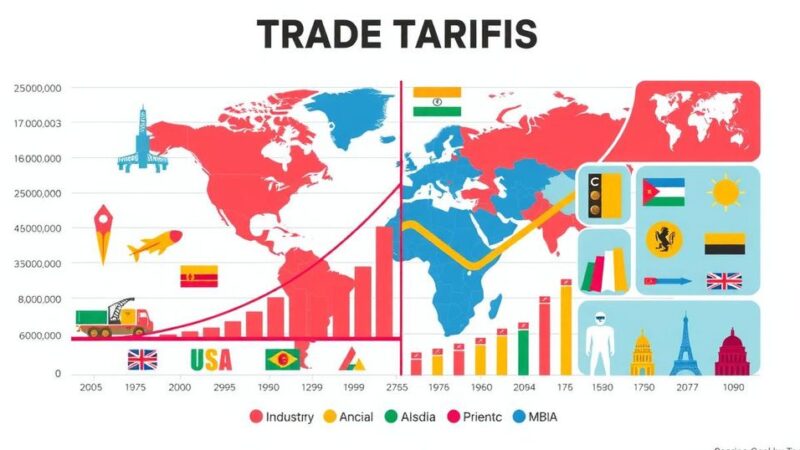President Trump has introduced a 10% baseline tariff on U.S. imports and a significant 38% tariff on goods from Guyana, escalating trade tensions. This move disrupts decades of trade liberalization, prompting potential retaliatory measures from global trading partners. Economists warn of adverse effects on the global economy and increased costs for American families.
President Donald Trump has announced a new 10% baseline tariff on all imports to the United States, with a significant 38% tariff specifically on goods from Guyana. This decision marks a notable escalation in trade tensions initiated by Trump upon his return to office. The administration’s actions disrupt longstanding trade agreements, building barriers against key global trading partners and reversing decades of trade liberalization.
During an event at the White House Rose Garden, Trump proclaimed, “It’s our declaration of independence,” while outlining reciprocal tariffs imposed on major partners, including 34% on China and 20% on the European Union. The specifics of the tariffs remain unclear, although they echo Trump’s persistent claims that international trade negatively impacts American workers and companies.
The immediate effect of these tariffs is anticipated, yet the official notices required for enforcement have yet to be published. Notably, a separate announcement on auto import tariffs will take effect on April 3, following Trump’s previous imposition of 20% duties on all Chinese imports and 25% on steel and aluminum.
Moreover, Trump’s advisors assert that these tariffs aim to restore critical manufacturing capabilities to the U.S. However, external economists warn that such measures could decelerate the global economy, increase the risk of a recession, and heighten living costs for American families. Businesses are expressing concerns over the unpredictability introduced by these tariffs, complicating their operational planning.
The appositely timed fear of rising costs has already curtailed manufacturing activity globally, while prompting consumers to accelerate purchases of automobiles and other imports before prices inflate. As investors awaited Trump’s tariff announcement, U.S. stock markets displayed volatility, losing nearly $5 trillion in value since February.
The imposition of tariffs by President Trump, particularly the 38% on goods from Guyana, signifies a substantial shift in U.S. trade policy. This action may provoke retaliatory measures from trading partners, potentially leading to economic consequences such as increased consumer prices and economic slowdown. The uncertainty surrounding these tariffs raises critical concerns among businesses and stakeholders about future trade relations and market stability.
Original Source: www.stabroeknews.com






